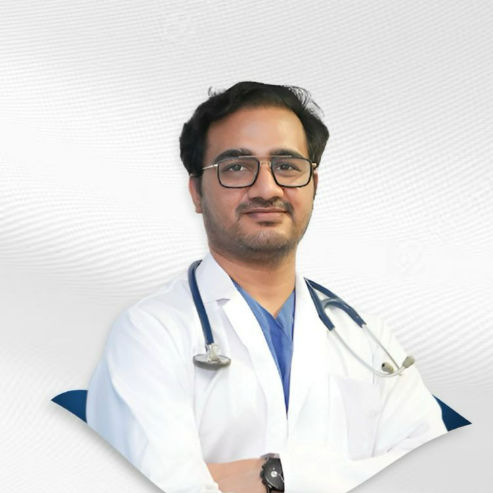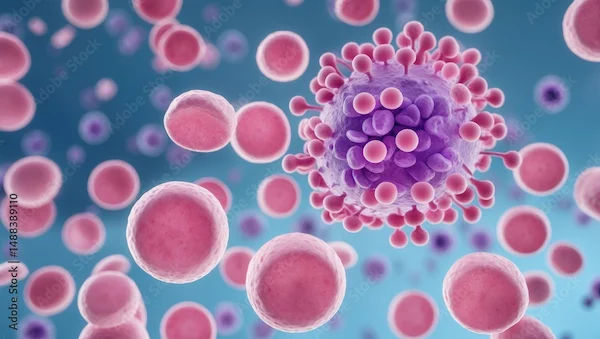Sudden Cardiac Arrest Overview and Care
Understand sudden cardiac arrest, its warning signs, causes, and emergency care measures. Learn how immediate response and advanced medical treatment are critical for survival and recovery.

Written by Dr. Rohinipriyanka Pondugula
Reviewed by Dr. J T Hema Pratima MBBS
Last updated on 22nd Aug, 2025

Sudden Cardiac Arrest (SCA) is a serious medical emergency that can happen without warning. Unlike a heart attack, which is caused by a blockage in the blood flow to the heart, SCA occurs when the heart suddenly stops beating due to an electrical malfunction. This stops blood flow to the brain and other vital organs, leading to unconsciousness and, if not treated immediately, death.
Understanding SCA, its causes, symptoms, and how to respond can save lives. This article will guide you through everything you need to know about sudden cardiac arrest and how to care for someone experiencing it.
What is Sudden Cardiac Arrest?
Sudden Cardiac Arrest (SCA) happens when the heart’s electrical system malfunctions, causing an irregular heartbeat (arrhythmia). The most common arrhythmia in SCA is ventricular fibrillation (V-fib), where the heart quivers instead of pumping blood effectively.
Without immediate treatment, SCA can be fatal within minutes. However, quick action with CPR (Cardiopulmonary Resuscitation) and AED (Automated External Defibrillator) can significantly improve survival chances.
Symptoms of Sudden Cardiac Arrest
SCA often occurs without warning, but some people may experience:
Sudden collapse
No pulse or breathing
Loss of consciousness
Gasping or no breathing at all
Unlike a heart attack, where chest pain is common, SCA usually happens suddenly, without prior symptoms.
Consult a Top Cardiologist
Causes and Risk Factors
SCA can affect anyone, but certain factors increase the risk:
Medical Conditions
Coronary artery disease (blocked arteries)
Previous heart attack
Heart failure
Cardiomyopathy (enlarged or thickened heart muscle)
Congenital heart defects
Severe electrolyte imbalances (low potassium or magnesium)
Lifestyle Factors
- Smoking
- Excessive alcohol consumption
- Obesity
- Sedentary lifestyle
- High blood pressure or cholesterol
Other Triggers
Extreme physical stress
Severe blood loss
Electrocution
Drug abuse (especially stimulants like cocaine)
How is SCA Different from a Heart Attack?
Many people confuse SCA with a heart attack, but they are different:
| Feature | Sudden Cardiac Arrest (SCA) | Heart Attack |
|------------------|--------------------------------|----------------|
| Cause | Electrical malfunction in the heart | Blockage in a coronary artery |
| Heartbeat | Stops suddenly | May continue but with damage |
| Symptoms | Sudden collapse, no pulse | Chest pain, shortness of breath |
| Treatment | Immediate CPR & AED | Medications, angioplasty, or surgery |
A heart attack can sometimes lead to SCA, but not all heart attacks cause cardiac arrest.
What to Do If Someone Has Sudden Cardiac Arrest?
Every second counts in SCA! Here’s what you should do:
1. Call Emergency Services (Dial 112/108 in India)
Shout for help and ask someone to call an ambulance.
2. Start CPR Immediately
Place hands on the center of the chest.
Push hard and fast (100-120 compressions per minute).
Continue until medical help arrives.
3. Use an AED (If Available)
Turn on the AED and follow voice instructions.
Place pads on the bare chest as directed.
Deliver a shock if advised.
Note: CPR keeps blood flowing to the brain, and an AED can restart the heart.
How to Prevent Sudden Cardiac Arrest?
While SCA can be unpredictable, you can reduce risks with:
1. Regular Heart Check-ups
Get an ECG, echocardiogram, or stress test if you have risk factors.
Monitor blood pressure and cholesterol.
2. Healthy Lifestyle Changes
Eat a heart-healthy diet (fruits, vegetables, whole grains, lean proteins).
Exercise regularly (30 minutes daily).
Quit smoking and limit alcohol.
Maintain a healthy weight.
3. Manage Underlying Conditions
Take prescribed medications for heart disease, diabetes, or high blood pressure.
Follow up with a cardiologist if you have a history of heart problems.
4. Learn CPR & AED Use
Training can help save lives—consider taking a course.
When to See a Doctor?
If you or someone you know has:
A family history of SCA
Unexplained fainting episodes
Heart disease risk factors
Consult a cardiologist for a thorough evaluation. Early detection and treatment can prevent SCA.
Can SCA Be Treated?
Yes! If treated immediately, survival is possible. Long-term treatments include:
Implantable Cardioverter Defibrillator (ICD) – A device that shocks the heart back to normal rhythm if SCA occurs again.
Medications – Beta-blockers, anti-arrhythmic drugs.
Lifestyle changes – To prevent future episodes.
Conclusion
Sudden Cardiac Arrest is life-threatening but survivable with quick action. Knowing CPR, recognizing symptoms, and maintaining heart health can make a huge difference.
Consult a Top Cardiologist
Consult a Top Cardiologist

Dr. Anand Ravi
General Physician
2 Years • MBBS
Bengaluru
PRESTIGE SHANTHINIKETAN - SOCIETY CLINIC, Bengaluru

Dr. Tripti Deb
Cardiologist
40 Years • MBBS, MD, DM, FACC, FESC
Hyderabad
Apollo Hospitals Jubilee Hills, Hyderabad

Dr. Zulkarnain
General Physician
2 Years • MBBS, PGDM, FFM
Bengaluru
PRESTIGE SHANTHINIKETAN - SOCIETY CLINIC, Bengaluru

Dr. Janjirala Seshivardhan
Cardiologist
7 Years • MBBS,DNB(GM),DM(Cardiology)
Manikonda Jagir
Apollo Clinic, Manikonda, Manikonda Jagir

Dr. E Prabhakar Sastry
General Physician/ Internal Medicine Specialist
40 Years • MD(Internal Medicine)
Manikonda Jagir
Apollo Clinic, Manikonda, Manikonda Jagir
(125+ Patients)
_0.webp)



